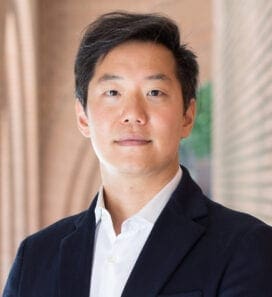Faculty

Changhan David Lee, PhD
Associate Professor of Gerontology
Education
- Postdoctoral training, UCLA, 2012
- PhD, Genetic, Molecular and Cellular Biology, USC, 2010
- BS, Microbiology, University of Washington, 2004
Research
- Metabolic regulation of aging
- Mitochondrial biology
- Dietary restriction
Overview
The Lee lab is largely interested in metabolic regulation of aging and age-related diseases, with special emphasis on mitochondrial biology. Dietary restriction and the modulation of nutrient-sensing pathways are robust and reproducible interventions that extend life/healthspan in model organisms. The mitochondrion, being the single most important metabolic organelle, is strongly implicated in aging and age-related diseases. However, the role of mitochondria in regulating life/healthspan has been largely unclear. Mitochondrial communication with the cell is dominantly viewed as a unidirectional process, in which mitochondria are at the receiving end as ‘end-function’ organelles. The existence of retrograde signaling, where the mitochondria respond back to the cell, is known, but the currently described signaling molecules are limited to secondary or transient metabolites (e.g. ca2+, ROS) or mitochondria-resident proteins encoded in the nuclear genome (e.g. cytochrome C). This has been recently challenged by the discovery of novel genes encoded in the mitochondrial genome that produce small bioactive peptides. These peptides can act both non-cell autonomously and cell-autonomously, and represent inherent signals originating from mitochondria. The lab focuses on how mitochondria communicate back to the cell and organism to regulate aging and age-related diseases using these innate signals encoded within its genome, especially those in the 12S rRNA locus. We hypothesize that these novel short open reading frames (ORFs) are potential candidate mitochondrial longevity genes and therapeutic/diagnostic targets.
Email: changhan.lee@usc.edu
Office Location: B12
Office Phone: (213) 740-1396
Fax: (213) 821-5885
Lab: The Lee Laboratory
Phone: (213) 821-6083

